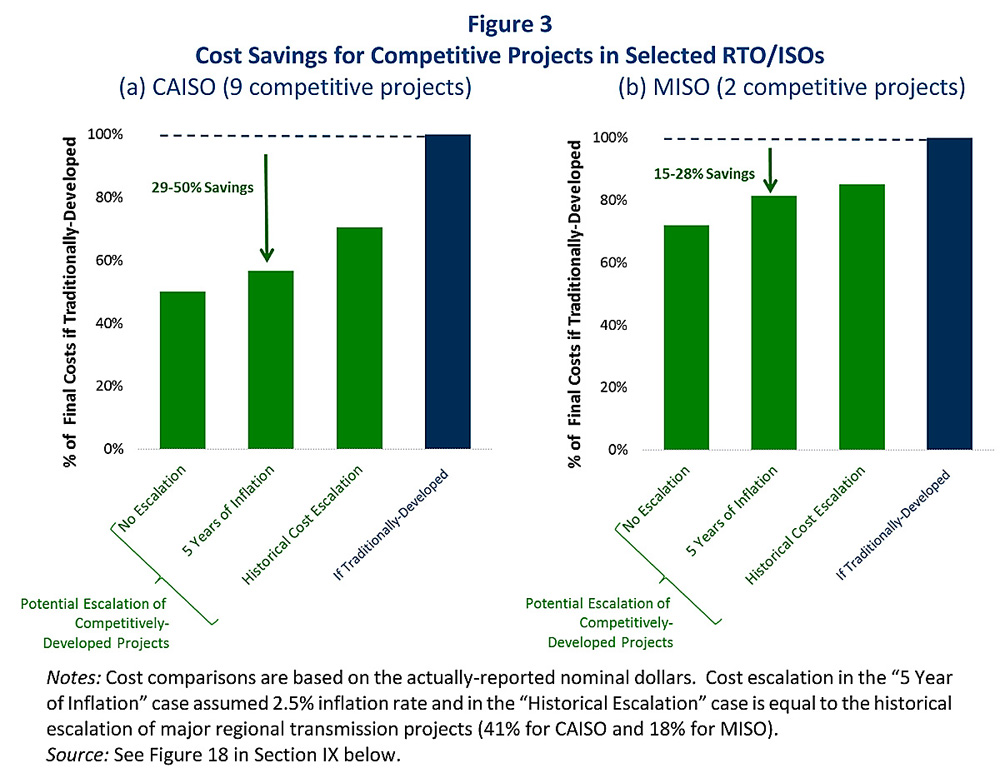 A report released by Brattle economists April 9 documents the experience with competitive development processes for U.S. transmission projects under FERC Order No. 1000. The report indicates that competitive transmission processes have the potential to stimulate innovation and meaningfully reduce the cost of transmission investments, thereby magnifying the overall benefits that the transmission grid can provide to customers and the economy.
A report released by Brattle economists April 9 documents the experience with competitive development processes for U.S. transmission projects under FERC Order No. 1000. The report indicates that competitive transmission processes have the potential to stimulate innovation and meaningfully reduce the cost of transmission investments, thereby magnifying the overall benefits that the transmission grid can provide to customers and the economy.
The key findings of the Brattle report include the following:
• Seven years after FERC Order No. 1000 mandated competition in regional transmission planning, about 97% of ISO/RTO transmission investments are still made outside competitive planning processes.
• The experience to date indicates that competitive transmission projects are associated with significant innovation and cost savings. While the competitive transmission projects in the U.S. have not yet been completed, estimated cost savings from the competitive process average between 20% and 30%, depending on how the final costs of completed projects compare to their initial accepted project price.
• The estimated 20% to 30% range for cost savings from competitive processes in the U.S. is consistent with international experience, which includes competitive transmission developments in Canada, the U.K., and Brazil.
• Both the U.S. and international experience demonstrate that the cost of conducting the competitive processes is small compared to the estimated cost savings achieved through the competitive projects themselves.
The Brattle report, “Cost Savings Offered by Competition in Electric Transmission: Experience to Date and the Potential for Additional Customer Value,” prepared for LSP Transmission Holdings, LLC, is authored by Brattle Principals Johannes Pfeifenberger and Judy Chang and Senior Associates Michael Hagerty and Akarsh Sheilendranath, with the support of Research Analysts Simon Levin and Wren Jiang.
